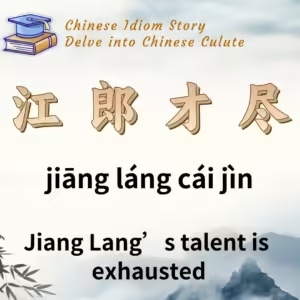
Chinese Idiom: 名下无虚 (Ming Xia Wu Xu)
English Translation: A person of great renown must have real talent and learning.
pīn yīn: míng xià wú xū
Idiom Meaning: Describes someone whose reputation is well-deserved, indicating that their name reflects their true abilities and accomplishments.
Historical Source: “Chen Shu: Biography of Yao Cha” (《陈书·姚察传》)
Idiom Story:
Yao Cha was a notable figure during the Southern Dynasties in China. He dedicated himself to his studies from a young age, persisting even during periods of war. By the age of twelve, he had already demonstrated remarkable writing skills, earning a reputation as a prodigy.
During the reign of Emperor Chen Xu, Yao Cha served as a scholar and was later promoted to the position of Tongzhi Sanqi Changshi, where he was responsible for managing the court’s edicts and decrees.
On one occasion, he was sent to the northern regions of China. Although some people knew of him, they were uncertain about his actual capabilities. A man named Liu Zhen decided to test Yao Cha’s knowledge by presenting ten difficult questions he had found in the “Book of Han.” Yao Cha meticulously analyzed each question and provided detailed explanations, which greatly impressed Liu Zhen.
As a result of this encounter, Liu Zhen often praised Yao Cha to others, famously stating, “名下定无虚士,” meaning that under such a name, there could be no false scholar. This phrase highlighted the idea that a person with a great reputation must possess genuine skills and knowledge, leading to the establishment of the idiom “名下无虚.”






